On 2 March, 324 000 doses of the AstraZeneca vaccine licensed to Serum Institute of India (SII) arrived at Phnom Penh International Airport, their first stop before being administered to the elderly, who are among those most vulnerable to developing severe illness from COVID-19.
Cambodia was among the first countries in the Western Pacific Region to receive vaccine doses from COVAX. The doses that arrived on 2 March were the first of a total of 1.1 million doses that are expected to be provided in batches by the COVAX Facility by the end of May.
COVAX is co-led by the Coalition for Epidemic Preparedness Innovations (CEPI), Gavi and the World Health Organization (WHO), alongside key delivery partner UNICEF. Its aim is to accelerate the development and manufacture of COVID-19 vaccines, and to guarantee fair and equitable access for every country in the world.
This photo essay shows the journey of the vaccine doses from their arrival at the airport to administration at health facilities.
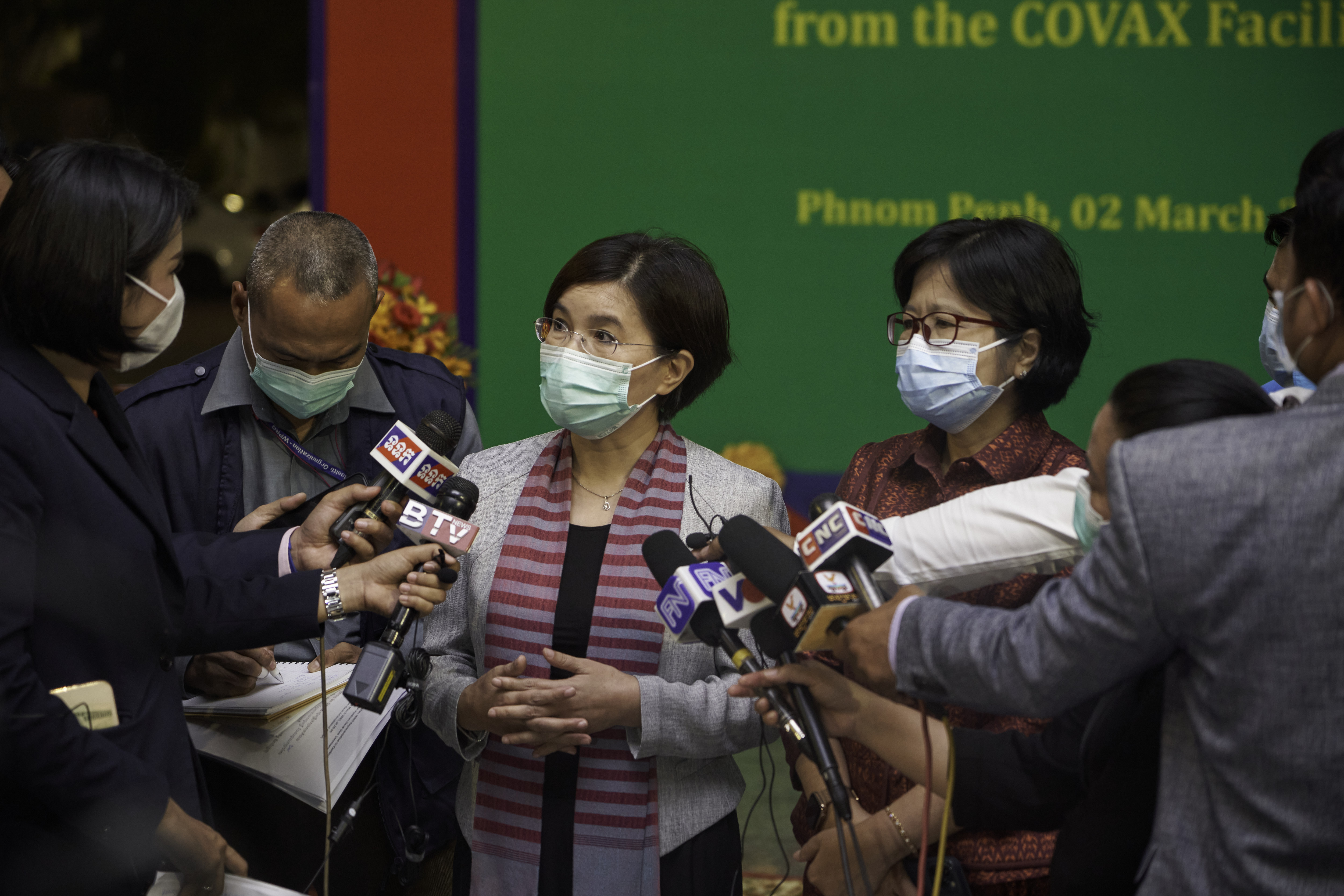
© UNICEF Cambodia/2021/Antoine Raab
Dr Li Ailan, WHO Representative to Cambodia, left, and Her Excellency Dr Or Vandine, Secretary of State, Ministry of Health (MOH), speak to media at the Handover Ceremony of the First Allocation
of COVID-19 Vaccines from the COVAX Facility, held at Phnom Penh International Airport on 2 March 2021.
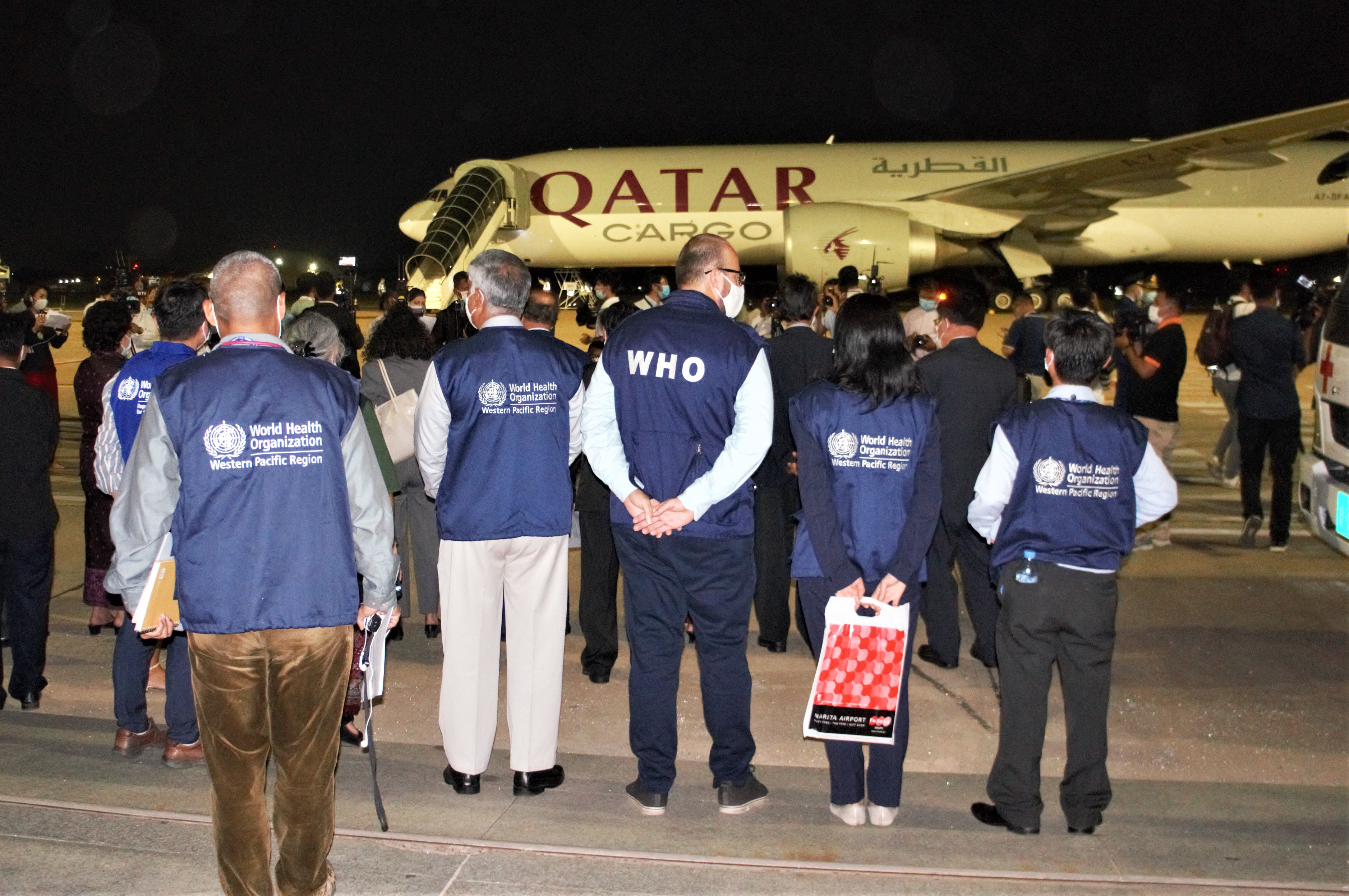
© WHO/2021
WHO staff greet the plane carrying the vaccine doses. The arrival of COVAX vaccine doses was the culmination of many months of hard work to ensure COVID-19 vaccination readiness in Cambodia. The Royal Government of Cambodia
(RGC) worked closely with WHO to meet national regulatory requirements and develop a National Deployment and Vaccination Plan (NDVP) for COVID-19 Vaccines.

© UNICEF Cambodia/2021/Antoine Raab
Vaccines doses are unloaded from the cargo plane. The race to immunize people against COVID-19 is the largest immunization campaign in history. Many partners have worked together to coordinate
the logistics of shipping millions of vaccine doses around the world. Globally, more than 397 million vaccine doses have been administered to date.
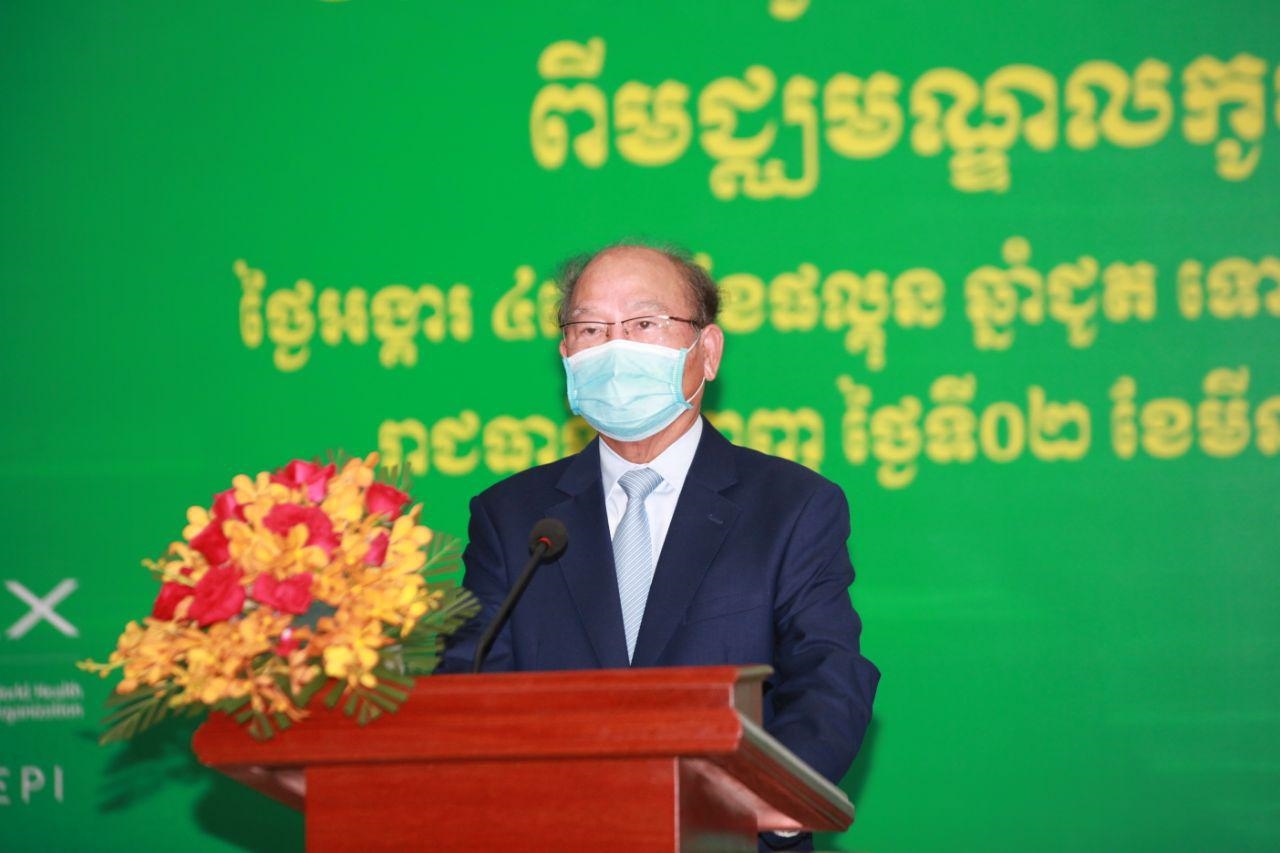
© Fresh News/2021
His Excellency Professor Mam Bunheng, Minister of Health, accepted the vaccine doses on behalf of the RGC. “The Cambodian government’s priority in the early stages of this vaccination roll-out is to
save lives by protecting frontline health workers, those at high risk of COVID-19 exposure or those who are likely to develop serious illness due to COVID-19.”
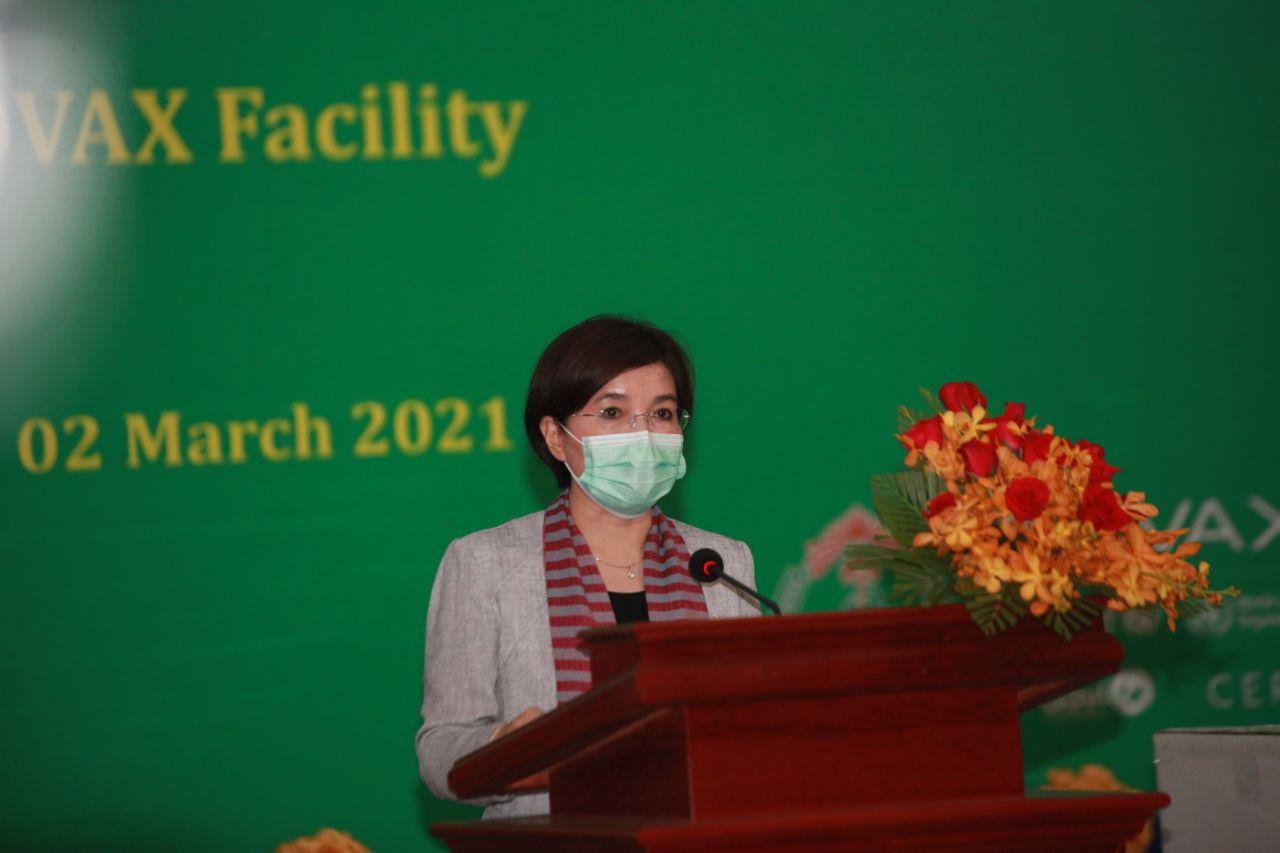
© Fresh News/2021
“We are here together at a historic event. The development of effective and safe vaccines a year after the emergence of COVID-19 is one of modern medicine’s greatest success stories,” Dr Li said
at the handover ceremony. “When used together with other public health measures, the vaccines are a critical new tool in the fight against COVID-19.”
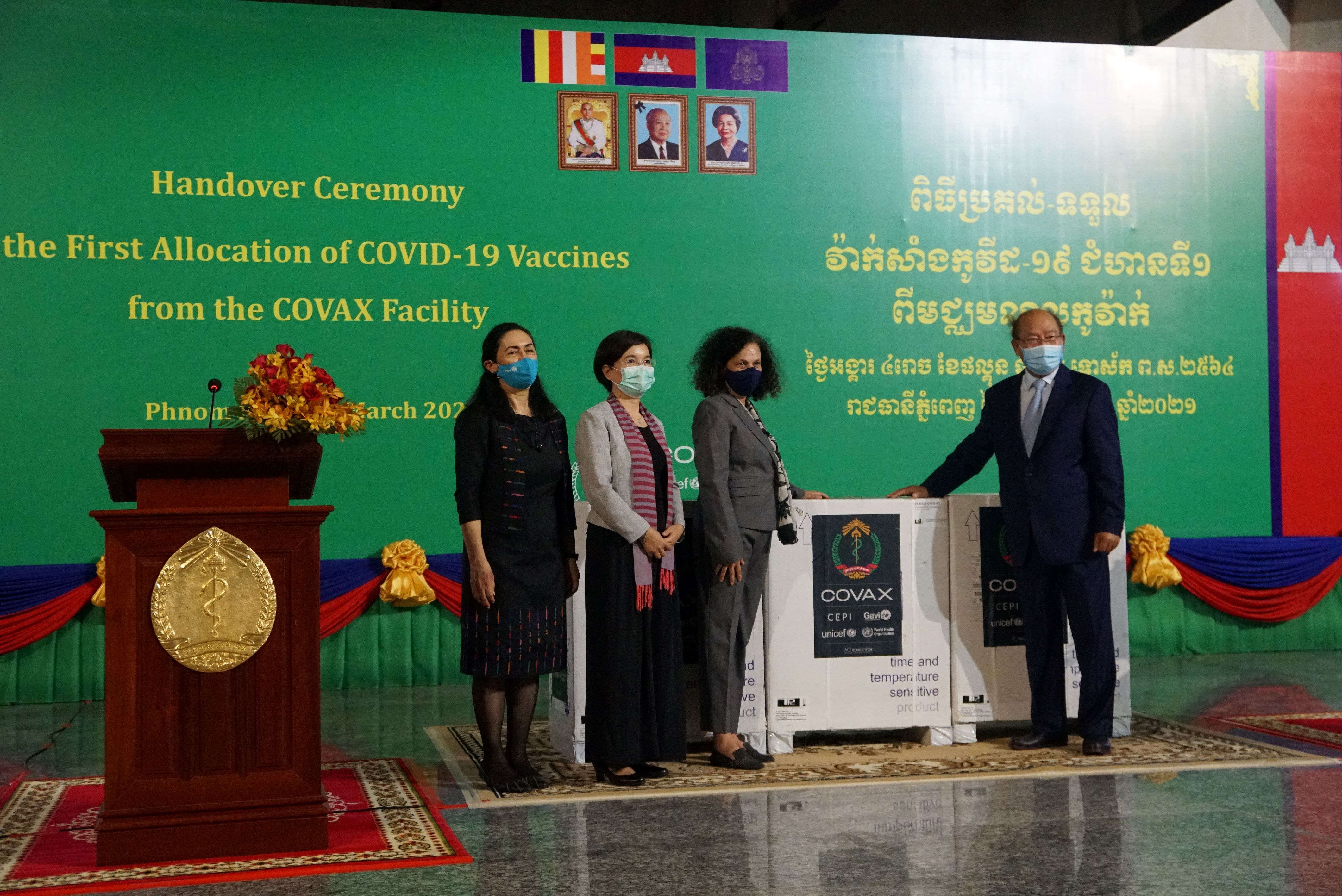
© WHO/2021
UNICEF Representative Foroogh Foyouzat, the EU Ambassador to Cambodia Carmen Moreno, WHO Representative Dr Li Ailan and H.E. Professor Mam Bunheng, Minister of Health, with the vaccine doses.
Cambodia is one of the 92 low- and middle-income countries that is eligible for vaccine support through the COVAX Advance Market Commitment (AMC). As of 11 March, US $6.3 billion has been pledged to COVAX AMC from over 45 government donors, foundations, corporations and organizations.
WHO, UNICEF, GAVI and CEPI are incredibly grateful for the support given by Team Europe and many other partners. These contributions demonstrate global solidarity and make it possible for COVAX to provide doses for at least 20% of Cambodia’s population. Doses will continue to arrive in Cambodia throughout the year.
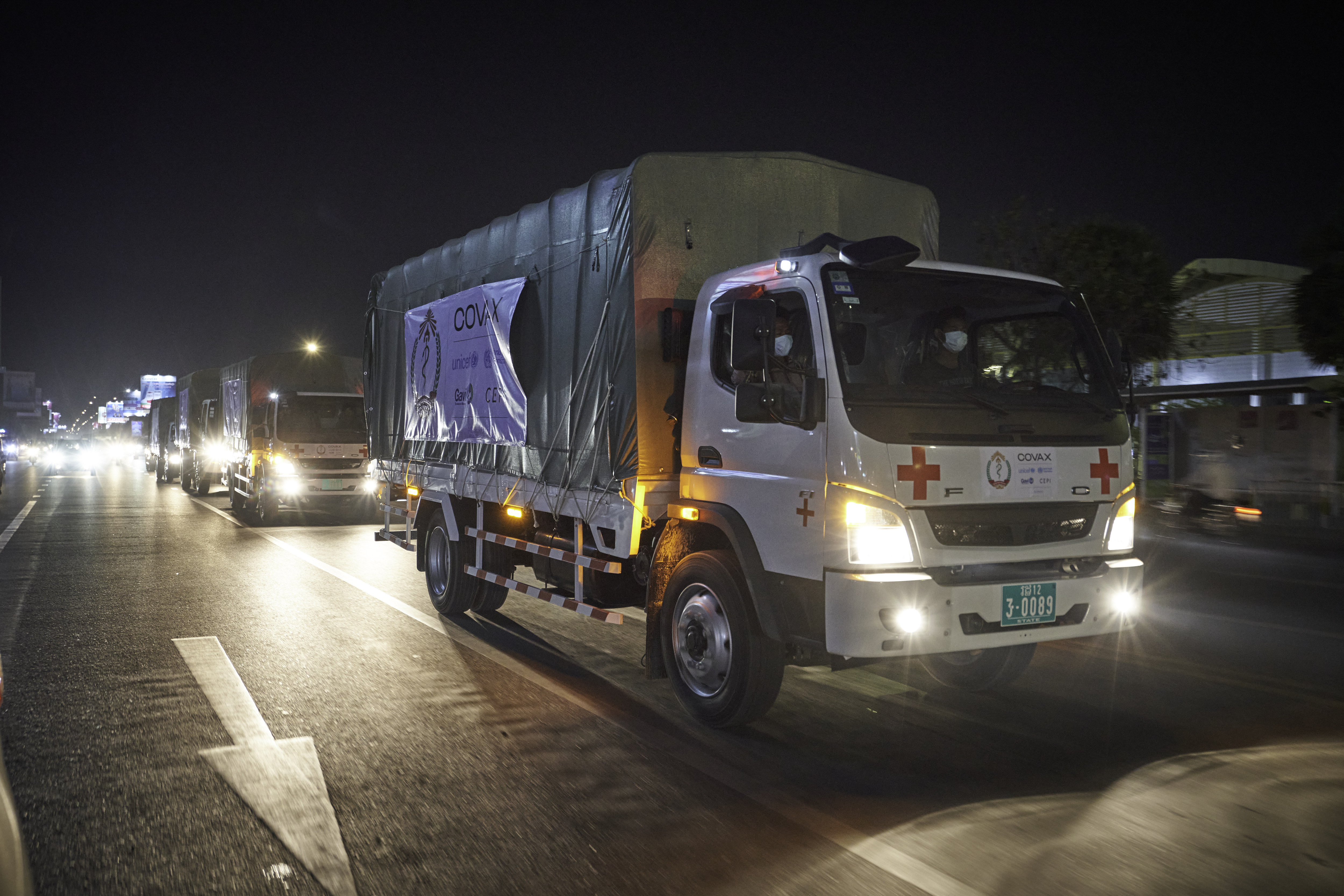
© UNICEF Cambodia/2021/Antoine Raab
Trucks take the vaccine doses from the airport to a medical storage facility for storage before distribution to health facilities. The NDVP plans for effective COVID-19 vaccine shipment, storage,
handling, and stock management; rigorous temperature control; and maintenance of logistics management information systems.
It also ensures the uninterrupted availability of vaccine doses to health facilities, so that opportunities to vaccinate are not missed because vaccines are unavailable.
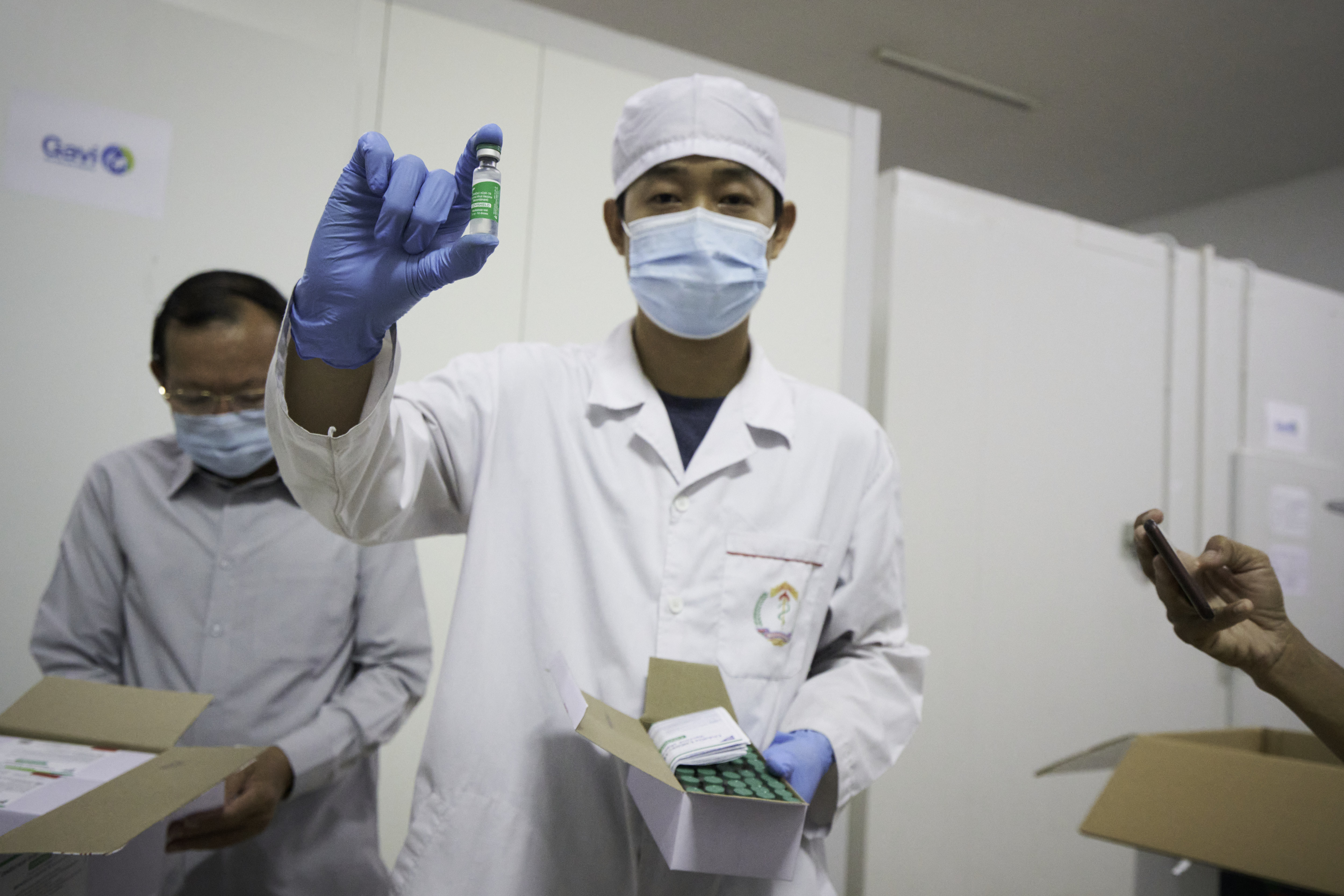
© UNICEF Cambodia/2021/Antoine Raab
A storekeeper holds a vial of the vaccine at the storage facility. As of 31 March, WHO has listed four COVID-19 vaccines for emergency use in all countries and for COVAX roll-out. More than 250
other vaccine candidates are currently in development. Scientists from across the world are collaborating to develop tests, treatments and vaccines that will collectively save lives and end this pandemic.
The process to develop COVID-19 vaccines is fast-tracked while maintaining the highest standards. The same steps are used for COVID-19 vaccine development as are used for other vaccines.
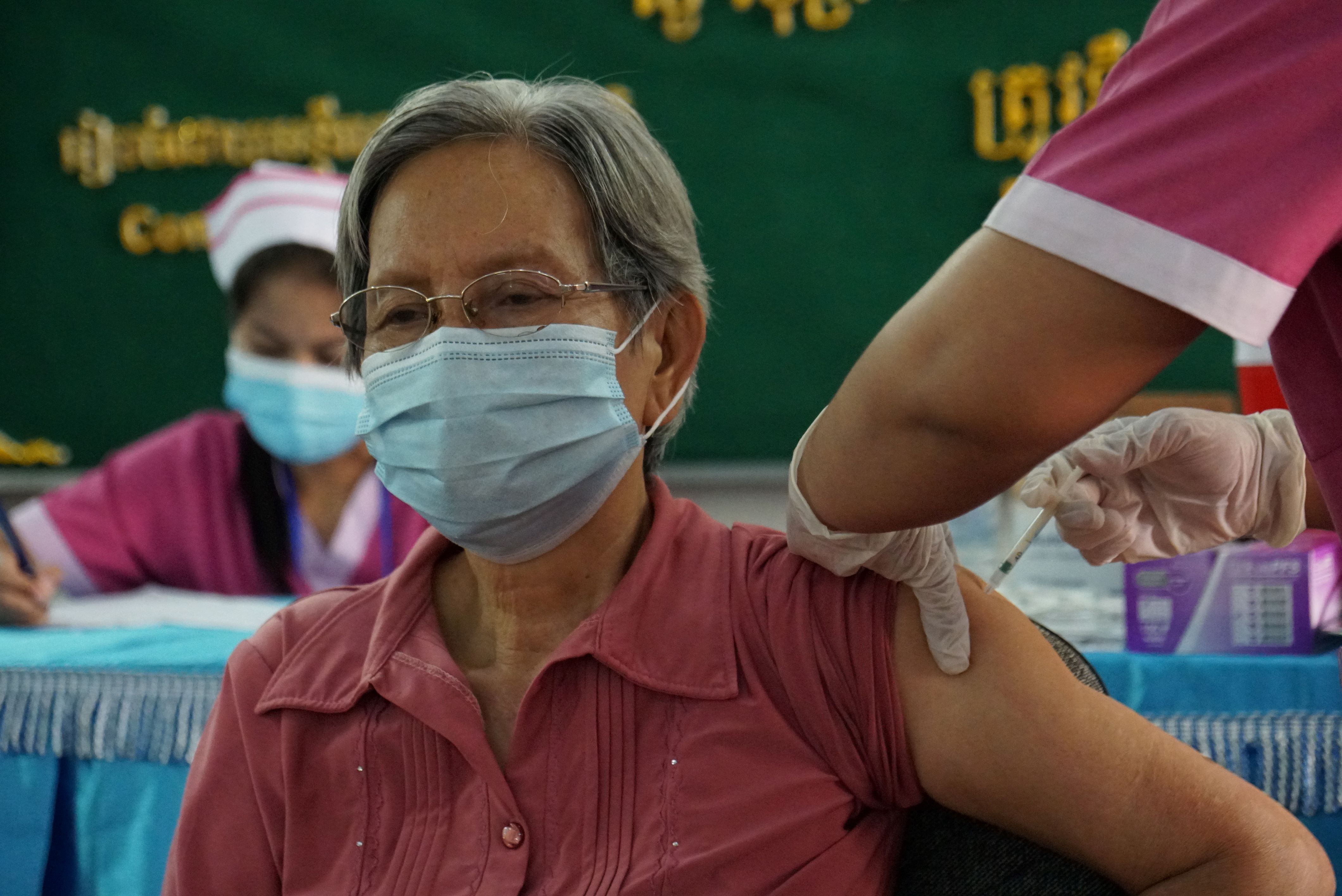
© WHO/Sophal Ouk
An elderly Cambodian receives a dose of the AstraZeneca vaccine at the National Paediatric Hospital in Phnom Penh on 11 March. Health facilities began administering the AstraZeneca vaccine on 4 March.
As supply of vaccines is limited due to high global demand, priority groups are being vaccinated in phases. People over the age of 60 in Phnom Penh, Kandal and Preah Sihanouk have been prioritized to receive the AstraZeneca vaccine. The RGC’s commitment to vaccinate priority groups including health care workers, older and vulnerable people is vaccine equity in action.
MOH and WHO constantly monitor for any possible adverse side effects and responses from people who have received vaccines. Vaccine safety is paramount, with regular assessments and post-approval clinical studies to report on vaccine safety and effectiveness.
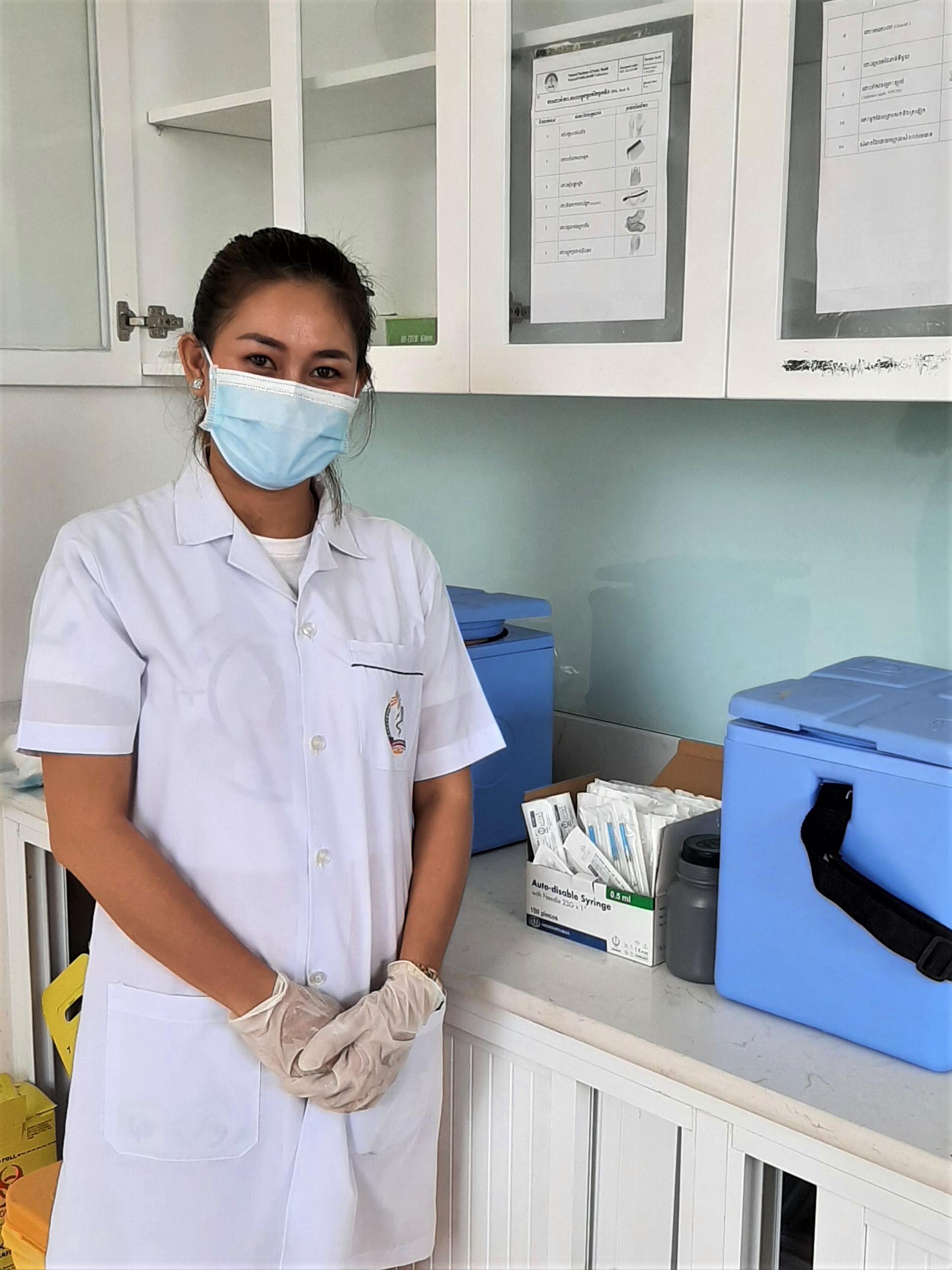
© WHO/Allison Smith
“I am so happy that we have vaccines,” said Phal Pisey, a nurse at Mekong Operational District in Phnom Penh. As a healthcare worker, Pisey was among the first to be vaccinated in the country. Now
she administers vaccines to other priority groups, including the elderly.
To date, healthcare workers like Pisey have administered the first dose of the AstraZeneca vaccine to tens of thousands of people in Cambodia. WHO is proud to support the RGC, particularly MOH, in rolling out COVID-19 vaccines in close cooperation with all partners, especially UNICEF, and is grateful for all contributions to COVAX and for other support for the vaccination programme.
Cambodia has established a national committee to plan and manage COVID-19 vaccination. WHO and UNICEF are working together to support the committee and the national roll out of vaccines.
While vaccines will not end the pandemic on their own, they are nonetheless a bright light of hope and a shining example of how global solidarity can contribute to better health outcomes in Cambodia and other countries.
